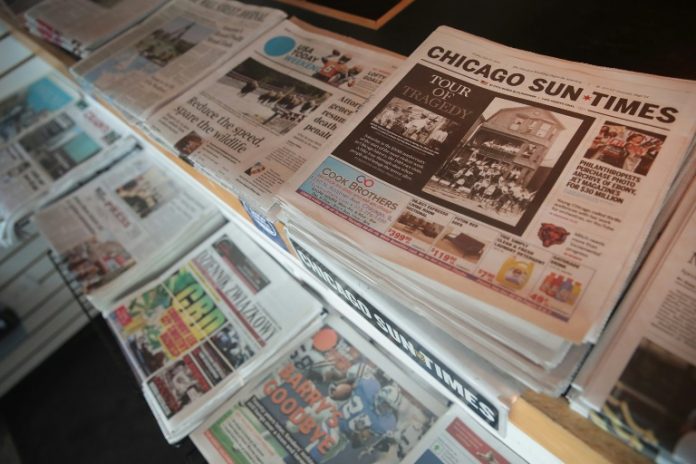The ailing US news industry is bracing for more turmoil with the coronavirus pandemic expected to deliver an economic shock to the sector – just when people need credible information the most.
The impact is expected to be especially difficult for the newspaper sector, which has endured a decade where 2,000 publications have disappeared and newsroom jobs have fallen by half.
News organizations are expected to take a hit from drops in advertising in an economic downturn, and could see declines in subscription revenue as readers pare expenses.
Conferences and events that some organizations have used to supplement their incomes is also likely to disappear as long as the health emergency persists.
“If you’re ad supported and now heading into a period of short-term economic contraction that’s very bad for your business,” said Gabriel Kahn, a journalism professor at the University of Southern California who follows industry economic trends.
“For smaller local players that’s a direct hit they can’t easily recover from.”
The free Seattle weekly The Stranger this week warned of an impending crisis and asked readers for donations, noting that “90 percent of our revenue – advertising, ticketing fees, and our own events – is directly tied to people getting together in groups. The coronavirus situation has virtually eliminated this income all at once.”
– Crisis highlights value –

At the same time, the epidemic offers “an opportunity to turn the tide of the past few years” and rebuild trust with readers, University of Oregon journalism professor Damian Radcliffe said.
“At a time of a national and international public health crisis, communities need reliable, informed journalism more than ever.”
Radcliffe said several news organizations have dropped paywalls as an effort to show “journalism as an act of public good.”
Kahn agreed that for many newsrooms, “this is the moment they can develop a connection with their audience and establish their value.”
Joseph Lichterman, head of editorial and digital strategy at Lenfest Institute, which owns the Philadelphia Inquirer, said news organizations will face huge challenges in covering the crisis as well as an opportunity.
“People tend to trust local media more than national media, so you want to have strong local news organizations,” he said.
But he added that news organizations are being pressed to expand coverage as the health crisis worsens, creating additional problems.
“They have to deal with the logistics of keeping the business afloat and making sure their staff is safe,” he said.
– Critical for public health –
Some research has pointed to the importance of local media in dealing with an epidemic, among other public interest matters.

A 2018 study by University of North Carolina researchers noted that trackers at the Centers for Disease Control rely on local news reports to monitor the spread of many diseases.
“The CDC relies on the news stories in local papers to provide them with an early warning system, which is critical in containing the spread,” the report said. “So far, social media has been much less reliable.”
The research noted that many US communities had become “news deserts” without a local news organization.
Kahn said the crisis could exacerbate the divide between the news industry’s winners and losers, with the stronger ones emerging.
“The best in class probably come out ahead and the herd gets winnowed,” he said.
Many local and regional newspapers have been in flux with the merger of the Gannett and Gatehouse chains, and the bankruptcy of another major player, McClatchy.
Joshua Benton, who heads the Nieman Journalism Lab at Harvard University, said it remains unclear if the corporate owners will be more interested in their bottom line than their journalistic mission.
“All of these companies are now either owned, run, deeply in debt to, or being puppet-mastered by one or more hedge funds or private equity firms,” Benton said in a blog post.
“At an absolute minimum, expect another and bigger wave of layoffs. In the worst case, could a coronavirus-aided recession be the thing that leads to the wave of daily newspaper closures people have been anticipating – but not seeing – for the past decade?”
Lichterman said the nonprofit model used in Philadelphia and elsewhere, often with philanthropic support, has some promise but that newsrooms “need to do a better job of articulating their value” to readers.
“The path we see forward is direct reader support, that has to be a key part of the solution,” he said.
















